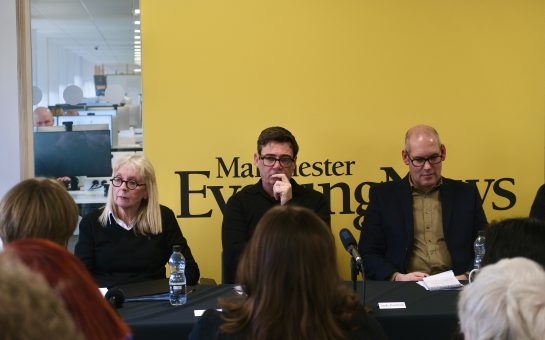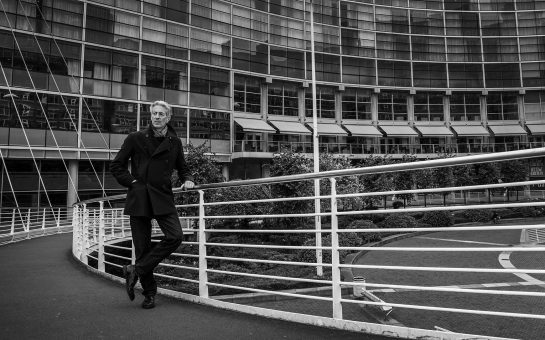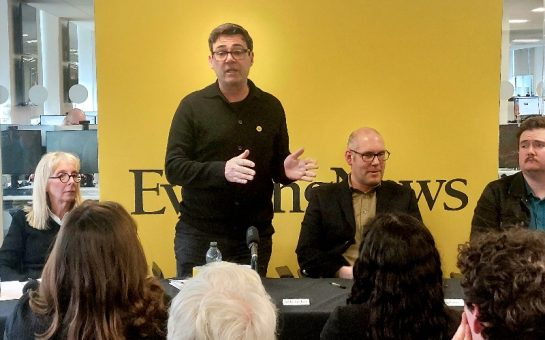A leading academic from the University of Manchester has claimed that the resignation of Zimbabwe president Robert Mugabe was inevitable once he lost the support of war veterans.
The announcement, in November, may have come as a shock to many outside of the African continent, but not to Dr Admos Chimohwu.
Thousands of Zimbabweans took to the streets across the world to celebrate the fall of Mugabe.
Dr Chimohwu, who previously worked for a non-Governmental organisation in Zimbabwe, told MM: “The writing was on the wall you could almost tell.
“There is no way the war veterans can be distinguished from the army, so once they peeled off and removed their support from him he was exposed.”
Despite a faltering economy and rumours over rigged elections Mugabe’s grip on power seemed as strong as when he started 37 years ago.
However, Dr Chimhowu argues that Mugabe had lost control well before the military coup, with this being an important factor resulting in his resignation.
He said: “I think in the main if you talk to many people, part of the key issue was a sense of growing indiscipline and a lack of control within the ruling party itself.
“The country was being put on auto-pilot and anybody could have literally emerged to rule.
“That lack of predictability on who was going to take over to me, to my mind at least, suggests to me that it was the key driver.”
The military coup occurred following the expulsion of then- Vice-President Emmerson Mnangagwa for allegedly plotting against the government.
Mnangagwa, known as the ‘Garwe’ or the crocodile in Shona, acted as Mugabe’s right-hand man for the last three years but a member of the cabinet since the 1980s.
Before taking up his position as Vice-President he held a number of Government roles including Minister of Defence and also Minister of State Security, wherein he effectively was the heavy arm which stopped any anti-Mugabe rebellions.
One such event which he was criticised over was the Gukurahundi massacres, where acting as Minister of State Security he presided over the killing of 20,000 Nbede citizens.
He has now taken over as President, where he officially succeeded Mugabe on November 24th and will serve at least until the 2018 general elections.
Due to his role in government many outsiders were sceptical over his appointment, but for Dr Chimhowu he is positive that Mnangagwa can turn the Zimbabwean economy around.
“President Mnangagwa is a lawyer himself, he has practiced and one of the things that you will notice in terms of the difference is that is his adherence to the legal tenants and respect of the constitution,” he said.
“You probably will see a lot more of that respect of the judiciary and the separation of powers.”
The elections are planned to take place before September 2018 and offer Zimbabweans a chance to forge a new path for their country.
They also create a sense of hope for the opposition parties, however strangely in the eyes of Dr Chimhowu the absence of Mugabe gives them even less of a chance of victory.
“At the moment, my reading at least is that the attraction the opposition had, which was the anti- Mugabe attraction, everybody didn’t like the old man anymore.
“They wanted him to go and any alternative was preferable because Zanu couldn’t get it’s house in order.
“But they would need now to craft a new narrative about it.”
Despite the fragility of his country, Dr Chimhowu remains confident that Zimbabwean’s will still support the majority party.
“Talking to a lot of people when I went it was much pretty much like a reformed ZANU is probably the best way forward for the country at this moment in time.
“You have to say, looking from the outside that I would be very surprised with an opposition victory given the way things are at the moment.”
Photo courtesy of Lauren Dent (inset CreativeCommons), with thanks.



